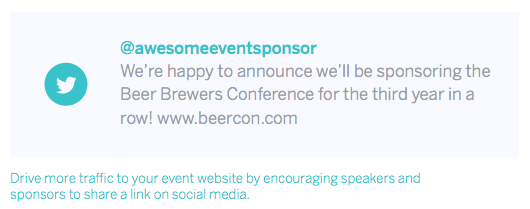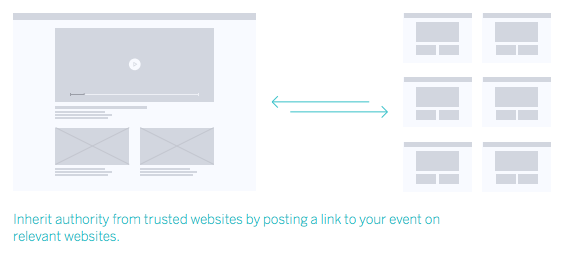SEO Cheat Sheet for Events
You may have heard the term SEO (or Search Engine Optimisation) before. What is it and why does it matter? You’re posting about your event on social networks and sending out invites to your email lists — is that enough?
Perhaps, but if you have an event website and you’re not ranking on popular search engines like Google or Bing, you’re missing out on a large slice of the pie. Before we get into specific steps you should take to optimise your site for search engines, let’s get one thing clear: SEO is not something you do once then reap the benefits. It’s not a hack. SEO is a commitment. It can take some time to see results.
According to resident Eventbrite SEO expert, Brendan Baker, “SEO can be a powerful tool, but you have to prove to search engines that you’re worth ranking. Organisers should be aware that it takes work!” With that said, here are a few actions that can make a difference in your website’s search ranking. We’ll start with some basics.
Cover the Basics
To stand a chance of showing up in search results, you’ll want to consider these two important factors before anything else:
Give your event name a boost
Keywords are the heart of SEO and your event name is the most valuable keyword of them all. If you’re hosting multiple or recurring events, you’ll want to make sure your event name matches your domain and is reflected in the header. Do this and you’re almost guaranteed to rank when attendees enter it in the search box.

Also, a matching event and domain let’s attendees know they’re in the right place.
Make sure the date and location are front and centre
When and where your event will be is important information for would-be attendees and search engines. Search engines know that events are timely and, in the pursuit of offering relevant search results, will use the date and location of an event to determine its ranking.
Build a reputation
Getting your domain name right and using your event name in the header should ensure you rank for your event name. When it comes to ranking first for generic search queries like “music festivals summer 2016”, it gets a little trickier. To do this, you’ll need to establish authority with search engines and prove you’re the summer music festival people are searching for. Here are a few things you can do to improve your chances.
Create and publish rich, valuable content
An event website needs to contain the basic info:
- When is it?
- Where is it?
- Who’s going to be there?
Search engines need this basic content to know everything about your event. To help boost interest in your site and chances of having your content shared, you’ll also want to include things like videos, infographics, and other formats that are easily sharable. To help provide the most relevant results, Google preferences fresh content — so new blog content, news and videos are a great way of showing that your event is up to date and relevant.

Pro tip: Make sure the images you use have relevant keywords in the file name and not the original (e.g. EventName-Music-Lineup-2016.jpg instead of DSC444.jpg).
Encourage others to promote your event and share a link
Drive more traffic to your event website by inviting speakers, vendors, and sponsors to promote your rich, valuable content to their networks. A simple tweet from an influential sponsor has the power to sell out an event!

Note: This process, called link building, can be easily abused. As a result, you may hear terms known as “white-hat SEO” and “black-hat SEO”. Black-hat techniques are a violation of Google/Bing’s terms and search engines can blacklist offenders, removing your site from their search engine permanently. For example, hiding links on your site or paying for other sites to link to your event page can get you banned by Google. The key is to be honest and authentic when using this strategy and stick to reputable event listing sites and legitimate event partners. Confused? SEO consultancy Moz has a good post about link building and what to steer clear of.
List your event on relevant listing websites
Your event website can inherit authority from other websites. When your event website is linked on sites that search engines like Google have deemed trustworthy, those engines will reward you with some credibility.
If you’re using Eventbrite to sell tickets or registrations, good news! When you publish a public event, your event will inherit some authority from us.

Even as SEO becomes an increasingly complicated task, these essential first steps are the foundation you’ll need to ensure your event is reaching the most people.
Ready to create an event that search engines love? Contact us or get started here.